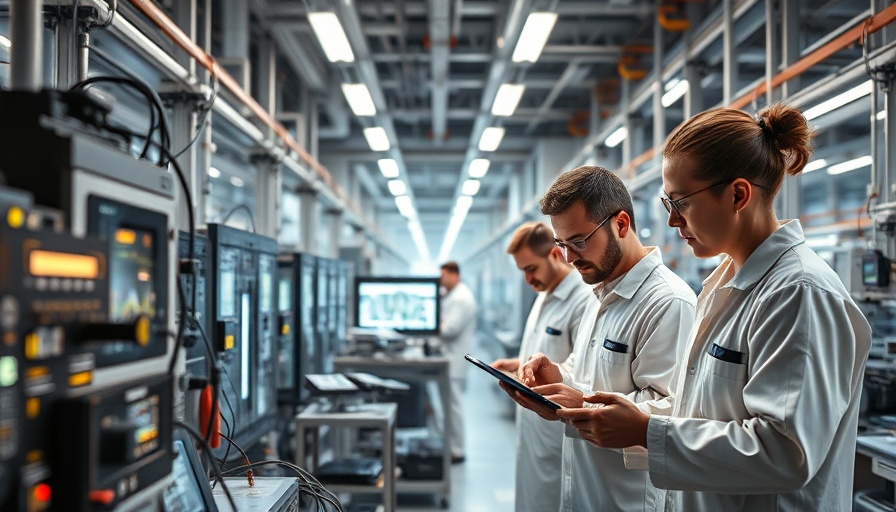
The Shifting Landscape of the U.S. Semiconductor Industry in 2025
2025 has emerged as a pivotal year for the U.S. semiconductor market, underscoring its critical role in global technology advancements. This industry not only supports hardware manufactured by prominent firms like Nvidia and AMD but also drives the burgeoning field of artificial intelligence (AI). With government policies and corporate strategies drastically shifting, understanding these developments is crucial for stakeholders and enthusiasts alike.
Nvidia's Stellar Growth Amidst Challenges
In the backdrop of a turbulent semiconductor market, Nvidia stood out with its remarkable performance. On August 27, the company revealed record second-quarter sales, attributing much of its success to a staggering 56% year-over-year growth in its data center business. This growth signifies the rising demand for AI chips, emphasizing Nvidia's dominant position not just in the gaming sector but increasingly in cloud computing and AI solutions.
The Government's Strategic Moves
Simultaneously, significant developments unfolded involving government interactions with semiconductor giants. On August 22, the U.S. government made headlines by converting existing grants into a 10% equity stake in Intel. This move aims to enhance U.S. semiconductor manufacturing and prevent Intel from compromising its foundry program—an essential part of American tech infrastructure.
Furthermore, September showcased shifting dynamics with the government negotiating AI chip sales licenses to China. Nvidia and AMD's announcement of a deal on August 12 showcased their orchestration with U.S. authorities, allowing them to sell AI chips in China for a 15% revenue share with the government. Such agreements highlight the complexities of global technology politics, where access to lucrative markets often hangs in the balance of domestic policies.
Global Partnerships Shaping the Future
Collaboration and investment remain key themes in the semiconductor space. For instance, on August 18, SoftBank's strategic $2 billion investment in Intel indicates that global players are keen on playing their part in shaping the future of American tech. Masayoshi Son, SoftBank’s CEO, has signaled the importance of such investments in fostering innovation and ensuring that companies like Intel remain competitive against rapid advancements internationally.
Corporate Leadership Shifts: A New Era for Intel
Another significant change this year was the appointment of Lip-Bu Tan as Intel’s CEO. His meeting with President Trump on August 11 showcased a commitment to rejuvenating Intel’s operations and expanding its influence in the tech landscape. Their discussions on the U.S. goal of boosting domestic semiconductor manufacturing illustrate the urgent need for America to reclaim its status as a global leader in tech innovation.
Why This Matters for the Future of Tech
The semiconductor industry is not just about chips; it's about the entire technology ecosystem that fuels everything from smartphones to autonomous vehicles to AI-driven applications. The trends observed in 2025 show that U.S. companies must navigate governmental policy, create strategic alliances, and rapidly innovate to thrive in a global marketplace.
Interest in the U.S. semiconductor industry remains critical, as it reflects broader technological advancements and national security concerns. Innovations within the sector could shape purchasing decisions for tech consumers and influence economies worldwide.
Concluding Thoughts: Keep an Eye on Tech Developments
The U.S. semiconductor industry's evolution in 2025 offers valuable insights and lessons in innovation, cooperation, and the interplay between government and business. As these developments unfold, tech enthusiasts and industry stakeholders alike should stay updated on anticipated breakthroughs and shifts in the competitive landscape.
For those intrigued by technology, following such advancements is imperative. As we witness history being forged in real-time, the relevance of understanding these dynamics will lead to informed discussions about the future of technology.
 Add Row
Add Row  Add
Add 



Write A Comment